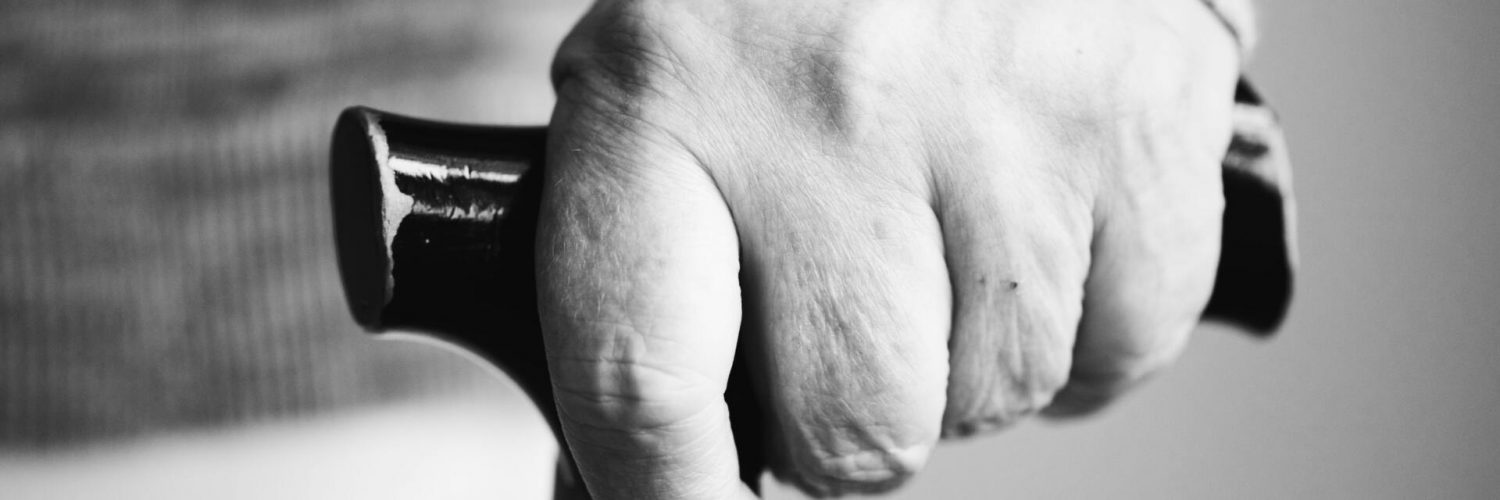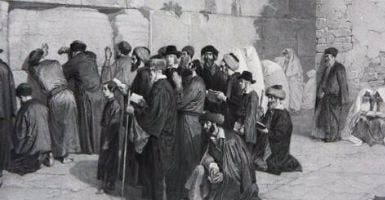It was taught in a Beraisa, R’ Yishmael b’Rabi Yosi says: Torah scholars attain increased wisdom as they age, as it states (Iyov 12:12): “With aged men is wisdom and length of days brings understanding.” As for Amei haAretz, as they age they attain added foolishness, as it states (ibid. 12:20): “He removes the language of the faithful and takes away the understanding of the aged”. (Shabbos 152a).
The Malbim (ibid.) explains that an older person’s ability to offer sage advice and dispel doubts is superior in two ways:
Knowledge attained by observation and experience is true since a person’s perception is informed by many trials and observations. From these, he can extract true principles about which there is no doubt. Therefore, “with aged men is wisdom”, since during their many days, they receive the laws of wisdom from their elders who in turn have a legacy from their ancestors. And “among those with length of days is insight”, since, over time, their research and observations increase, and they deduce one thing from another through inferences and other logical means.
In other words, the advantage of the elderly sage lies in his interactions with members of previous generations (and wisdom decreases with successive generations) and in the accumulation of vast knowledge through decades of study and research (in addition to his wealth of life experience). That is why he is the most qualified to decide on questions.
However, ruling on Halacha requires great meticulousness and clarity. In previous essays, we have discussed a Dayan’s fitness to preside over disputes at various ages, and we cited various Halachos of the Sanhedrin. In this essay, we will present interesting sources from Gedolim of the previous generations that specifically relate to ruling on matters of Halacha.[1]
Poskim over many generations have emphasized that Halacha may only be ruled upon after patient and meticulous analysis. Rabbenu Shmuel (Tosfos, Eruvin 65a) quotes Rabbenu Klonymus. who in turn cites the Yerushalmi, that anyone under stress or who has an unsettled mind should not rule on Halachic questions. He supports this with the expression: “When in straits do not rule.” (Rashi, ibid., comments that this is not a Pasuk and suggests that it may be from Sefer Ben Sira). Tosfos’ ruling is cited by the Bach (242).
The Bach adds that it is Midas Chasidus for those whom Chazal say should not Daven, such as one who was angry that day, or one who has just returned from a journey on foot, etc., to also abstain from ruling on Halacha. However, there is no Issur involved, even Lechatchila.
(Regarding a Dayan, the Rambam, Sanhedrin 20:7, Tur and Shulchan Aruch, Choshen Mishpat, 10:1, rule explicitly that he must be very thorough in his judgement. One who is overly self-assured and issues judgment without comprehensively investigating the matter, is a fool, a Rasha, and arrogant.)
Accordingly, there were some Gedolim who refrained from ruling in their old age. For example, the Divrei Chaim of Sanz refrained from deciding on questions concerning practical Halacha in his later years. In some of his Teshuvos in Shu”t Divrei Chaim, he reiterates that he should not be relied upon in practice. For example, in Yoreh De’ah Chelek Beis Siman 102 he states:
Now, in my old age, I do not want people to rely on me. I heard that the Noda b’Yehuda did not want to disclose his opinions on matters of Halacha in his old age at all. I too refrain from this. Only to one who is sharp and fears Hashem do I reveal a little of my thinking in order to stimulate him.
Likewise, the Shefa Chaim[2], in his Shiurim on Chumash and Rashi considered it a great pitfall that there were rabbis in his time who adjudicated disputes, offered Halachic rulings, and even gave out Kashrus certification when they were more than eighty years old.
Nevertheless, we should judge the elderly Dayanim of our times who continue serving in their positions favorably. While in previous generations there were many competent young rabbis to fill the places of the elderly rabbis, in our generation there are few who know how to clarify Halacha and correctly interpret the Torah; without them, there would be almost no one to turn to when complicated questions arise.
However, generally speaking, Dayanim should note that the Torah expressly requires a Levi to retire from the labor force and stop working at the age of fifty (Bamidbar 8:25). Likewise, the Gemara rules that we do not install an elderly Dayan in the Sanhedrin (Sanhedrin 33b).
What about Chazal’s teaching that “Torah scholars attain increased wisdom as they age ”? Surely this implies that their competence improves with age?! The Shefa Chaim explains that although they become additionally wise and insightful, their memory weakens with age. Moreover, not every person can consider himself to be a genuine Torah scholar.
The Or haChaim states (Vayechi 47:29) :
We see that as a person becomes elderly, his understanding diminishes – even a wise man cannot hold his own in Torah debates, and his intuitions diminish. Even though the Sages said, “The minds of Torah elders are settled” – they were careful to state “settled”, to distinguish them from elderly Amei haAretz whose minds become confused. However, in reality, their powers of intellect and insight diminish.
The Achronim have debated these comments at length.
There is a fascinating Machlokes regarding the first Mishna in the fourth Perek of Bava Metzia that is relevant to this discussion.
Metaltelin (movable commodities) are not acquired until the customer draws them towards him (Meshicha) – the seller’s acceptance of a cash payment does not effect a transfer of ownership.
The Mishnah discusses when silver and gold coins are exchanged, which of the coins is to be considered the commodity, and which is to be considered the cash payment. Both the Bavli and Yerushalmi relate that R’ Yehuda haNasi changed his view on this. As a young man, he believed that the more valuable currency should be considered the cash payment. (This is why coins are usually considered cash payment – they are a more valuable medium than the commodity being purchased.) It follows that the gold coins should be considered the cash payment when exchanged for silver.
However, in his old age, Rebbi believed that the defining characteristic of cash payment is the frequency of its use as payment. (Coins are usually considered cash payment because they are more frequently used for payment than the commodity being purchased.) It follows that silver coins should be considered the cash payment when purchasing golden coins.
The Yerushalmi accepts Rebbi’s earlier view (as decided by R’Shimon b’Rebbi): “Silver buys gold but gold does not buy silver.” However, the Bavli accepts Rebbi’s later view: “Gold buys silver but silver does not buy gold.” This is why in the Bavli, Perek Daled of Bava Metzia is called “haZahav”, while in the Yerushalmi it is called “haKesef ”!
The Sdei Yehoshua (on the Yerushalmi, ibid.) explains the basis of the disagreement. The Yerushalmi gives precedence to what Rebbi taught in his youth because that was when his intellectual faculties and insight were at their peak. It rejects his later position, issued in his old age, because his age prevented him from engaging in the rigorous and precise analysis needed. Though “the minds of Torah elders are settled”, that is only concerning their ability to think, not their ability to clarify matters of Halacha, since that requires meticulous study, deliberation, and enormous effort, something difficult for the elderly (Alei Tamar on the Yerushalmi, ibid.). [However, even the Yerushalmi would give precedence to the elderly in matters that rely on proficiency in the Poskim and responsa of the Achronim. It is only in matters that require in-depth deliberation that the Yerushalmi favors youth.]
[1] Compiled by R’ Raziel Friedman, one of the Rabbanim of the Beis Medrash.
[2] The Klausenberg Rebbe, R’ Yekusiel Yehuda Halberstam ztvk”l (1905-1994), also known as the Divrei Yatziv.















Add comment